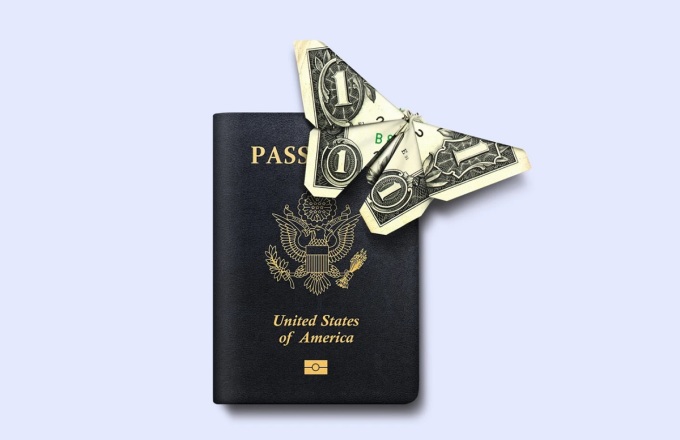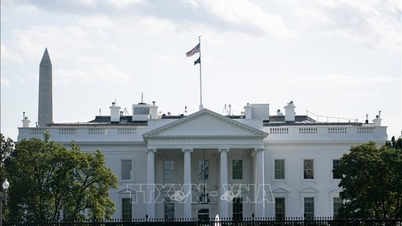The number of members of the Amerexit and I Want Out groups on the Reddit forum has reached nearly 3 million as more and more people realize that life in America is too difficult.
Amelia Basista and JP Stonestreet call 2015 "the year from hell" - the last straw that forced them to move to South America.
That year, Stonestreet, 43, was diagnosed with congenital spinal stenosis, a degenerative disc disease. He had to undergo two surgeries and was unable to work. His wife, Basista, also quit her job to stay home with him. Their income dropped significantly while Stonestreet's insurance premiums skyrocketed.
They realized they couldn't afford their mortgage, car payments and other expenses. "The normal American way of life was no longer within our reach," he said.
They sold their home in Denver, but it wasn’t enough to pay off their debts. They planned to leave the country. In 2017, they moved to Cuenca, Ecuador, and continued their work remotely. Their expenses dropped by 70%.
Basista and Stonestreet are part of a growing group of Americans who are tired of the cost of living and looking for a better quality of life in other countries. They read tips from groups like AmerExit , which has 57,000 members, and I Want Out , which has 2 million members, on Reddit. They consult with relocation and concierge services that cost hundreds to thousands of dollars each, and tell others how to leave from their own experiences.
In these groups, the concepts of geoarbitrage (saving by going somewhere cheaper) and FIRE - short for financial independence, retire early - are the goal and the mantra.
Some, like Basista and Stonestreet, see leaving the U.S. as the first step in a long-term plan that will end with retirement abroad. Others are pursuing a digital nomad lifestyle — a flexible lifestyle where they travel while supplementing their income by working remotely.

Illustration: IB
There are no exact statistics on the number of Americans who have moved abroad, but as of 2023, there were nearly 161 million US passports in circulation, nearly half of all Americans. Meanwhile, only 10% of Americans previously had passports. The US State Department estimated that in 2020 there were a total of 9 million Americans living abroad, including dual citizens born and raised abroad. While in 2010 the estimated number was only 5 million.
A recent Monmouth University poll found that 33% of Americans said they would like to settle in another country. In 1995, in the same Gallup survey, only 12% said so. A 2023 InterNation survey of 12,000 expats from 172 countries found that the United States was the country of origin with the largest proportion of expats.
It’s no surprise that people feeling the pressure of high bills are looking abroad. The Bureau of Labor Statistics says the average monthly household expenses in the U.S. will rise from $5,100 in 2020 to more than $6,000 in 2022. In a new survey by the Financial Technology Association, 61% of U.S. workers said they are spending every penny they earn.
Despite enjoying higher material standards than most other countries, the United States lags behind Western countries on several quality-of-life indicators: Americans work more, take fewer vacations, spend more on health care, and die earlier than people in other high-income economies .
These factors may explain why some Americans are moving to countries perceived as having a lower cost of living. Data from global recruitment firm Deel shows that the UK, Germany, Canada and France are among the top seven international destinations for US job seekers.
In places with universal health care, government-subsidized childcare, and cultures that encourage a greater work-life balance, the value of the dollar could increase.
Maliya Fale, 22, of Minneapolis, Minnesota, is a digital nomad and content creator who has been traveling throughout Latin America for nearly three years. In February of this year, she left the United States for good.
In March, she arrived in the coastal town of Puerto Morelos, Mexico, and is planning for the future. Living abroad offers flexibility that the United States can't offer.
Those who left the United States on a similar path say they never regret the past. In November 2015, writer Cristina Johnson packed three suitcases and boarded a one-way flight from Pennsylvania to Belize, a Central American country.
The 53-year-old writer has a disability that makes it difficult to make a living in the US. In Belize, her monthly expenses are just $250. There, Johnson was able to build a house, save thousands of dollars, and earn about $1,200 a month writing content marketing ads.
"Even if I saved a million dollars, it would not be worth the mental, emotional, and physical benefits I have gained here," she said.
Mariana and Dustin Lange founded the Mexican Relocation Guide in 2019 to anticipate the growing trend of people wanting to leave the US. Mariana said the company doesn’t promote the idea that people “live like kings on very little money” because that’s not the case. However, those leaving the US will have a better quality of life for the same amount of money, or even less.
Since the pandemic lockdown eased, the Lange family business has boomed.
Mark Zoril, founder of North Carolina-based financial planning firm PlanVision, started working with clients who wanted to move abroad eight or nine years ago. The business helps them manage their assets across borders and save for their future while living abroad.
Zoril said most of his clients plan to stay abroad indefinitely, largely due to the high cost of return. Central America, Portugal and Spain are particularly popular destinations because of their relatively low cost of living and mild climate.
Leaving the US is not all good. Lower living costs often come with reduced income, which may hinder some people’s chances of returning. Cultural differences and language barriers add to the complications and risk of alienation.
Other expat destinations pose their own challenges. Amid political turmoil in Ecuador, Stonestreet and Basista moved to Europe to live a semi-nomadic, “slow travel” lifestyle.
However, they do not regret leaving America. Their only regret is not doing it sooner.
Within three years of leaving the United States, the couple had paid off $60,000 in consumer debt and doubled their savings for retirement. Back home, they had never even considered retirement possible.
"We think we can work until we drop, but life is short. You never know what tomorrow will bring," Stonestreet said.
Nhat Minh (According to BI )
Source


![[Photo] The 1st Government Party Congress held a preparatory session.](https://vphoto.vietnam.vn/thumb/1200x675/vietnam/resource/IMAGE/2025/10/12/1760257471531_dsc-4089-jpg.webp)
![[Photo] National Assembly Chairman Tran Thanh Man attends the 725th anniversary of the death of National Hero Tran Hung Dao](https://vphoto.vietnam.vn/thumb/1200x675/vietnam/resource/IMAGE/2025/10/12/1760285740475_ndo_br_bnd-8978-jpg.webp)

![[Photo] Delegation attending the Government Party Congress visited President Ho Chi Minh's Mausoleum](https://vphoto.vietnam.vn/thumb/1200x675/vietnam/resource/IMAGE/2025/10/12/1760240068221_dsc-3526-jpg.webp)





























































































Comment (0)